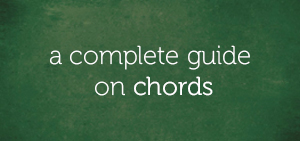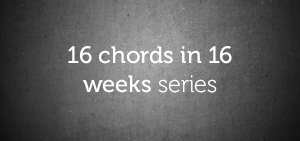Music can mean one of these four things to you: a passion, a mission, a vocation, or a profession.
In this lesson, I’ll be showing you two principles that can help you define what type of musician you are and also influence the way you relate with other musicians out there.
If at the end of this lesson, you have a good sense of purpose and know what exactly it is you want to do as a musician, then I’m fulfilled.
Let’s get started.
Principle #1 — “Knowing What Music Is To You”
“Music is a tool of varied expressions.” [Olumati Isaiah]
The following statements are accurate:
- There’s NO generally accepted definition of music.
- There’s NO particular path that every musician must follow.
Consequently, every musician must be able to define music for himself/herself, and then go ahead to find out the path(s) that lead to his/her fulfillment.
Here are the four paths:
Music as a passion
Music as a mission
Music as a vocation
Music as a profession
If you must define yourself as a musician and have a clear view of what you’re wired to do, you must know which of the paths to follow.
Path #1 – Music As A Passion
This is the path for those who love music and it could be the love for singing or playing instruments. Those who follow this path are basically those who love music and are good at it.
Passion musicians outnumber every other category of musicians because a vast majority of people who are into music (singing and playing an instrument) are basically doing it out of passion.
I’m talking about those who fill out the “hobby fields” of forms with any of the following:
- Music
- Piano playing
- Singing
Passion musicians are satisfied when they get compliments or when their friends and families are impressed with their musical skill. Hence, they always love to show off.
It’s also important to know that passion musicians are not into music because they want to make a career out of it or get paid. But in the ordinary (dictionary) sense of the word, they are still considered as musicians.
Path #2 – Music As A Mission
If your desire is to touch lives, change the society, transform minds, and cause a change through your music, then you’re a mission musician.
Mission musicians also love music like passion musicians.
But beyond the love, they are simply doing music because they believe they have a role to play in the society; which can include (but isn’t limited to) any of the following:
- To sing against political injustice, rape, domestic violence.
- To use music as a tool to advocate for human rights.
- To propagate morals and influence the next generation.
- To promote religious ideas, doctrines, and beliefs.
- To spread love across the world.
Mission musicians don’t do music to make money, rather, they make money to do music.
So, a mission musician is souled out to a course and he/she invests into music with only one intention: touching the society.
Path #3 – Music As A Vocation
Vocational musicians are doing music as a paid occupation and even though a vast majority of them are not trained and qualified, their products and services are not only needed but are paid for.
This is a career-based path where the musician goes beyond being in love with playing an instrument or singing into creating valuable services and products.
Music promoters, music educators, music journalists, music producers, music technologists, and other vocational musicians fall into this category.
They wake up in the morning on weekdays and get busy with the creating, promotion, and distribution of music products and services. On weekends, they are also engaged (making trips to perform, teach, etc.)
Path #4 – Music As A Profession
Professional musicians are trained and qualified.
Attention: Keep in mind that this musicians path is traveled on by a few who are really determined.
Beyond loving the music and the interest to make a living out of it, professional musicians have an academic background and are usually an embodiment of experience, exposure, and expertise.
The experience, exposure, and expertise comes from prolonged association with scholars and teachers over a stipulated period of time and at the end of the process is a trained and qualified musician who is competent and can solve problems.
Professional musicians charge professional fees and are sometimes expensive to hire because of their qualification.
“Now That You Know The Four Paths…”
At this point, you’d have to sincerely look inwards and allow yourself to be drawn to the right path or paths to follow.
It’s possible that you’ll have to be in all of, three, or two of the paths at the same time and I’m a classic example of a musician who is wired to follow all paths: passion, mission, vocation, and profession.
I can’t tell you which path it is, neither can anyone else tell you and this is because people can only suggest to the best of their knowledge — no one truly knows that path except you.
So, look inwards and I guarantee that you’ll find the path. I did this so many years ago and I gained direction, confidence and speed.
Principle #2 – “Appreciating What Music Is To Others”
Like I said earlier, there’s no particular path meant for all musicians that we all must take. That’s why we must look beyond ourselves while relating with other musicians.
Although there could be more scenarios, I’ll show you two practical examples of conflicts that can happen between musicians.
Conflict #1 – Passion Musicians Vs Professional Musicians
A passion musician is readily available and is satisfied with any given opportunity to do what he/she loves — which is almost a hobby to him/her; while a professional musician who is trained and qualified (maybe having a PhD in music) would love to be hired and treated professionally.
Let’s say the passion musician is “Musician A” while the professional musician is “Musician B.”
Without having the understanding of the various paths and the implication of those paths, it’s very possible that Musician A will misunderstand Musician B or vice-versa.
Musician A may not understand:
- Why Musician B insists on being hired and booked.
- Why Musician B will devote time and money to study music (which is Musician A’s hobby)
Musician B may not also understand:
- Why Musician A doesn’t want to take music seriously and attach professional fees to his/her services.
- Why Musician A doesn’t feel the need to get formal training and qualification.
At the end of the day, these differences can result to inter-personal conflicts with both parties thinking that their path is the only path.
Conflict #2 – Mission Musicians Vs Vocational Musicians
A classic example of mission musicians are church musicians who play in church as a voluntary service to God and to bless lives through it and they’re different from vocational church musicians who are hired by a local church, club, lounge, bar, studio, or a performing artiste.
Attention: I’ll associate mission musicians with “Musician C” and vocational musicians with “Musician D.”
Have you noticed that there’s no final answer to the question bothering on whether a musician has to be paid or not?
Mission musicians will always tell you the best thing to do is to volunteer and “serve God” with one’s gift, “be a blessing” and “let lives be transformed” and they say all these based on their understanding of the mission path to musicianship.
But there are also those whose path are on the vocational highway and they are traveling on it to make a living, pay their bills, and meet their needs. What this means is that music puts food on their table, shelter over their head, and clothes on their back.
Musician C and Musician may never agree until the very last star in the galaxy dies. However, if you want to be balanced and unbiased, you’ll know that both musicians are correct in their respective paths.
“You Too Can See And Appreciate Other Musicians For Who They Are”
The truth is this:
Every musician is a reflection of the path or paths he’s chosen.
A passion musician and a professional musician are two different musician types entirely and as such, their views, opinion, approach, intensity, goals, and more are divergent.
If you’re passion musician, you need to understand that the professional musician is unique and that the diversity between the both of you and other musicians (vocational and mission musicians) must be appreciated and respected.
When you don’t understand, appreciate, and respect the differences between the four musicians path, conflicts and misunderstandings are inevitable.
In a situation where you’re finding it so hard to appreciate the different paths, endeavor to respect all musicians and the paths they’ve chosen for themselves.
Final Words
Thank you for your time and I appreciate.
In a subsequent lesson, I’ll invest more time in breaking down each of these musical paths to anyone who wants to better their understanding on them.
For now, I’ll leave you with the obligation of making up your mind on path or paths to follow and be sure to also appreciate and respect other musicians — even if their path differs from yours.
Good-bye for now and see you in the next lesson.
Chuku Onyemachi
Latest posts by Chuku Onyemachi (see all)
- The Formation Of Diminished Seventh Chords Used To Be Challenging Until I Did This
- How To Form Seventh Chords In Two Shakes Of A Dog’s Tail Using Third Intervals And The Circle Of Fifths Chart
- I Played The 13sus4 Chord And This Happened…
- How To Build Seventh Chords Like An Architect Using “Foundation And Structure” Concept
- This 4-Week Plan Will Help You Master All The Major Scales







Comments on this entry are closed.